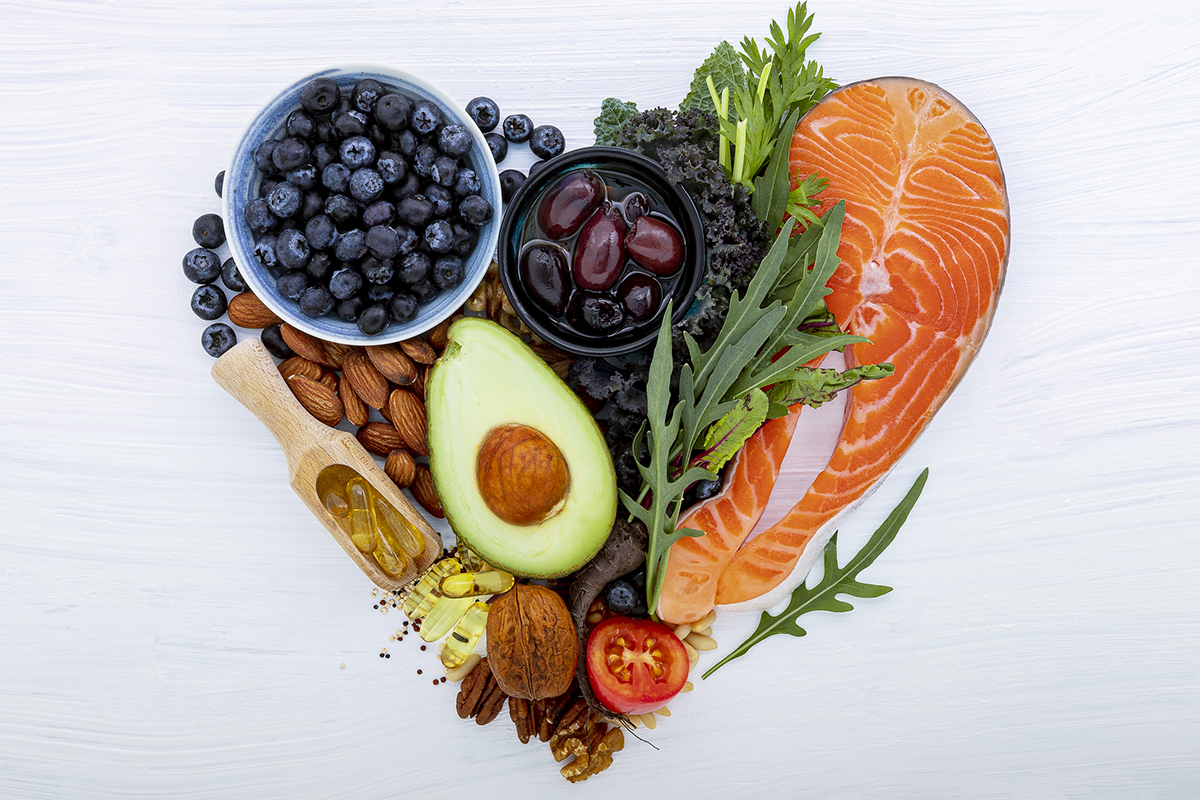Heart disease is the No. 1 killer of American men and women. How did we get here?
Several factors have contributed to this trend over the last several decades. Carrying the most weight, if you’ll pardon the pun, is overweight and obesity. Modern conveniences, which encourage a sedentary lifestyle, definitely play a role in the development of our nation’s overweight and obesity epidemic. Stressed-out, burned-out adults make little time for exercise. Physical education programs are no longer mandatory in many of our schools. Just recently, obesity has been brought up to the level of cigarette smoking as a risk factor for death. It is a tragic fact that this generation of obese children may have shorter life expectancies than their parents. This puts heart disease in the category of modern-day plague. But this plague is only a symptom—a symptom of unhealthy food consumption.
How does unhealthy food consumption lead to heart disease?
Contributors to heart disease include consumption of deleterious man-made trans fats, refined carbohydrates and sweets. Regular consumption of these foods can cause unstable blood sugar and insulin levels leading to a gamut of biochemical and hormonal imbalances, which propagate inflammation. This eating behavior also can cause high LDL cholesterol and triglyceride levels. Add to this an ever-increasing girth and high blood pressure (caused by insulin resistance), and we have what is known as syndrome X. This leads to devastating results for the cardiovascular system.
American’s are the largest consumers of unhealthy fats, refined carbohydrates and excess calories. This is wreaking havoc on our exquisitely fine-tuned biochemistries and consequently overwhelms our metabolisms. The truth of the matter is, our genetics have not caught up to the way our foods are processed and consumed. To illustrate this point, consider our prehistoric ancestors: Cave men and women didn’t have bagel trees or doughnut bushes, not to mention sugary sodas and juice drinks to quench their thirst. There was no candy or high fructose corn syrup. There was fruit, but in limited quantities and more often than not, only seasonally. Famine was a part of everyday life. Our Stone Age ancestors also didn’t have unhealthy factory-made hydrogenated fats. They ate what they killed and what grew from the ground: Natural, unprocessed, whole foods consisting of flesh, vegetables, roots and shoots, nuts and seeds, and occasional fruits and whole grains. These are the foods our genetics and biochemistries can tolerate. Maybe in another 500,000 years, our genetics will “catch up” and adapt to our overconsumption of processed foods. Who knows, we even may be able to eat plastic by then!
I would be remiss not to mention exercise. After all, our Stone Age ancestors had to hunt and gather, walk long distances to get their next meal and run away from predators while doing so. (We’re on the food chain, too.) Their daily physical activity was not negotiable. In our modern age, we have only to walk to our refrigerators, to the local market or to our cars to take us to the local market. Unfortunately, this is not enough. Exercise offers a multitude of benefits. Brisk walking, jogging or bicycling coupled with strength training and resistance exercises can bring about increases in insulin sensitivity, increases in resting metabolic rate (you burn more calories doing nothing!) and increases in cardioprotective HDL cholesterol (the garbage truck that removes dangerous LDL). Simply, the heart is a muscle. When we work it, it gets stronger.
Along with a natural whole foods diet and regular exercise, some very important nutrients for the prevention and treatment of heart disease along with a daily multivitamin and mineral supplement include coenzyme Q10, L-carnitine, fish oil, tocotrienols, aged garlic extract, alpha-lipoic acid, guggulipids, olive leaf, resveratrol, l-arginine, EGCG, NT Factor, Pycnogenol and magnesium. Even when we eat perfectly, it is not possible to get optimal or therapeutic doses of these nutrients. Supplementation often is necessary and best when under the supervision of a knowledgeable physician or nutritionist.
Learn more about natural strategies for heart disease prevention that you can discuss with your doctor in Dr. Hoffman’s upcoming book, How to Talk With Your Doctor, from Basic Health, Fall 2006.
Leyla Muedin is a clinical nutritionist and lecturer at the Hoffman Center and is available for speaking engagements for private and public sector wellness programs. Please call (212) 779-1744 for more information.







